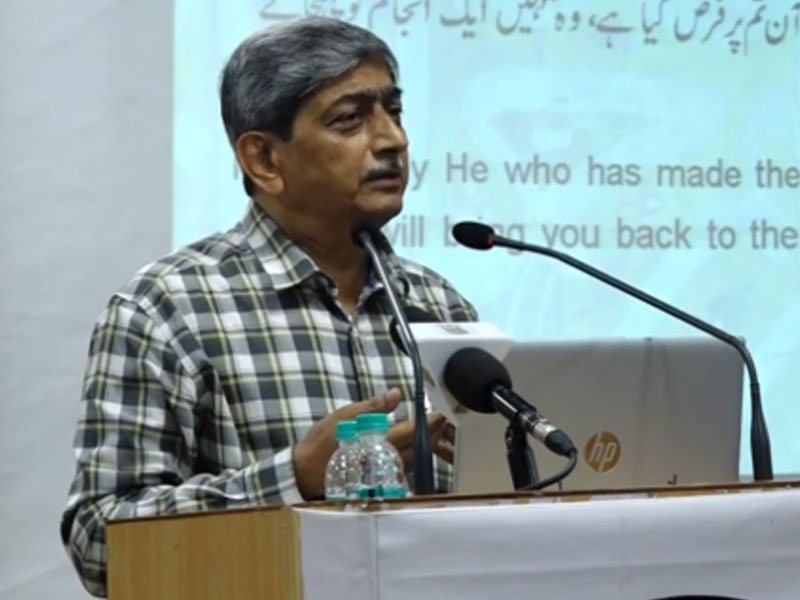
Mohammad Aslam Parvaiz: Islamic Scholar/ Academic
Dr. Mohammad Aslam Parvaiz, an eminent academic and administrator, is widely recognized for his contributions to education and science communication. He served as the Vice Chancellor of Maulana Azad National Urdu University (MANUU) from 2015 to 2020, where he played a pivotal role in promoting Urdu education and integrating modern scientific thought into traditional learning systems.
Born in 1954 in Delhi, Dr. Parvaiz pursued his early education in science and later specialized in plant physiology, earning a Ph.D. from Aligarh Muslim University. His academic journey reflects a rare blend of scientific expertise and deep engagement with Urdu, a language he passionately advocates for as a medium of modern education.
Dr. Parvaiz’s tenure as Vice Chancellor of MANUU was marked by significant reforms aimed at expanding access to quality education, particularly for marginalized communities. He emphasized the need for skill-based training and introduced several programs to enhance students’ employability. Under his leadership, MANUU saw increased collaborations with other institutions and a notable expansion of its academic infrastructure.
Beyond his administrative roles, Dr. Parvaiz is a prolific writer and speaker. He has authored numerous books and articles, many of which focus on the relationship between Islam and science. His notable works include Islam and Science: Religious Orthodoxy and the Battle for Rationality, which addresses the compatibility of faith and scientific inquiry.
Dr. Parvaiz has been a strong advocate for scientific temper and the need to dispel misconceptions about science in religious contexts. Through his initiatives, such as workshops and public lectures, he has inspired a generation of students and educators to think critically and embrace a holistic approach to knowledge.
Respected for his vision and dedication, Dr. Mohammad Aslam Parvaiz remains a significant figure in academia and public discourse, bridging traditional and modern educational paradigms.